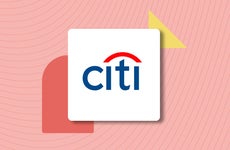Rewards checking accounts: What they are and what to watch for

The Bankrate promise
At Bankrate we strive to help you make smarter financial decisions. While we adhere to strict , this post may contain references to products from our partners. Here's an explanation for .
Key takeaways
- Rewards checking accounts will pay you cash back for using your debit card and/or pay competitive interest rates on a portion of the balance in your account.
- Many rewards checking accounts cap the total amount of earning power, restricting a high APY to a relatively small balance, or cap the total amount of monthly purchases that are eligible for cash back.
- Make sure you comb through the fine print before opening a rewards checking account to verify that you can meet the minimum balance requirements and avoid any fees.
If you’re chasing rewards for your regular spending, you’re probably very familiar with the maze of credit cards that offer points, miles and cash back. However, if you’re worried about the potential for racking up debt while racking up rewards, there are rewards checking accounts that can help you score some extra perks like cash back on debit card purchases and interest on your balance.
Rewards checking accounts aren’t all upside, though. You may need to meet a number of requirements to actually qualify for your rewards, and you’ll need to be mindful of fees to ensure that you aren’t paying an extra cost to chase those benefits. Read on to learn more about how rewards checking accounts work and whether they’re right for your finances.
Best rewards checking accounts
The best rewards checking accounts give you either cash back on debit card purchases or a high APY on balances.
| Bank | Cash back | APY |
|---|---|---|
| Discover Bank Cashback Debit account | 1% cash back on up to $3,000 in debit card purchases each month | N/A |
| LendingClub Bank Rewards Checking | Unlimited 1% cash back on debit-card purchases | 0.10%* |
| Meriwest Smart REWARDS Checking | N/A | 2% on balances up to $15,000 |
| All America Bank Ultimate Rewards Checking | N/A | 5.15% on balances up to $15,000 |
| Quontic Cash Rewards Checking | 1% cash back (up to $50 per month in total rewards) | N/A |
| SoFi High-Yield Checking | N/A | Unlimited 0.50% |
*APY paid on balances of $100,000 or less; balances of greater than $100,000 earn 0.15 percent APY.
Pros of using a rewards checking account
When comparing a rewards checking account with a traditional checking account, the upsides are fairly straightforward. While traditional checking accounts often don’t pay any interest and/or offer any meaningful incentives for using your debit card, rewards checking accounts can be a great fit if you regularly use your debit card for purchases.
- Cash back: A rewards checking account can put money back in your pocket each month when you make purchases using a debit card.
- No annual fee: Rewards checking accounts typically charge no annual fee, unlike some credit cards that also offer cash back.
- ATM fee reimbursements: Many rewards checking accounts also offer to reimburse some – or all – of your monthly out-of-network ATM fees.
- Earn interest: Some rewards checking accounts pay interest on the monthly balance, providing you with another form of cash back
Cons of using a rewards checking account
Rewards checking accounts aren’t automatically 100-percent rewarding, though. Be sure to consider some of the potential trade-offs.
- Limits on perks: Some rewards checking accounts put a cap on the amount of cash back that can be earned. Some accounts pay competitive annual percentage yields (APYs) on balances only up to a certain balance, above which the APY paid is significantly lower. For example, Penn East Federal Credit Union pays a competitive 3.08% APY on balances up to $7,500, but after that, it’s a tiny fraction of 0.1% APY.
- Better perks elsewhere: Many credit cards offer a higher amount of cash back than a rewards checking account.
- Barriers to entry: A rewards checking account may require a higher minimum balance than other accounts or require direct deposit. Also, the rules for earning perks aren’t always easy to understand and can be confusing.
- Fees: Like all banking products, a rewards checking account may charge fees, including a monthly maintenance fee. Some accounts charge no fees or offer ways to easily avoid them, so it pays to shop around.
- Credit cards offer better purchase protections: The liability for not reporting an unauthorized debit card transaction within two business days could cost you up to $500, but for credit card purchases, the maximum liability is $50. (One possible protection is to set up text alerts for withdrawals so you’re immediately alerted to fraudulent activity.)
Bottom line
Consumers looking to earn cash back on day-to-day purchases using a debit card are good candidates for a rewards checking account. Accounts that pay interest and reimburse ATM fees may provide additional ways to earn and/or save money. What’s more, some banks offer an account bonus for opening a rewards checking account, providing yet another way to put some cash back into your pocket. Don’t open the first one you see, though: As with all decisions with your personal finances, it pays to shop around to make sure you’re finding the best deal.
–David McMillin contributed to updating this article.
Related Articles



